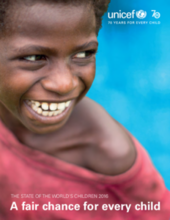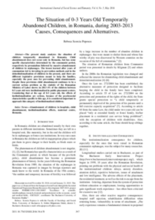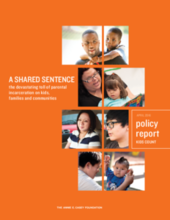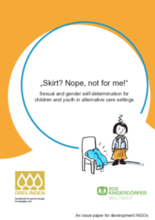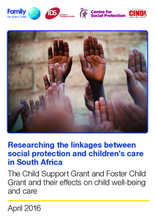Displaying 301 - 310 of 505
The aim of the present paper is to systematically review the empirical studies that have analyzed the associations between poverty and cognitive development in children under 18 years of age from Latin American and Caribbean countries between 2000 and 2015.
This report from UNICEF discusses the state of world’s children and points out that when it comes to the development and survival of children, odds are stacked against those from the poorest and most disadvantaged households.
This report highlights the research on the disparities that exist between LGBTQ foster youth and their nonLGBTQ peers, as well as the compounding effects these factors have in relation to other intersecting factors including race, ethnicity, culture and language.
This study used a secondary analysis of data from 2003 to 2013 to better understand the situation of children temporarily abandoned in Romania. It looked at data for children aged 0-3 years who were abandoned in different hospital units or institutionalized in public orphanages or public and private foster care institutions.
This exploratory research involved focus group consultations with seven child and family welfare agencies to investigate the impacts, barriers, benefits and limitations of cultural support planning for Indigenous young people in, and leaving care in, Victoria.
This manuscript reviews the issues facing children outside of households and argues for the importance of gathering robust data about this population to formulate responsive policies and services, mobilize resources, and foster accountability.
This policy report from Kids Count outlines the impacts that parental incarceration has on children, and on communities as a whole, particularly in the context of mass incarceration in the United States. The report concludes with recommendations for investing in families to mediate the detrimental effects of parental incarceration, which disproportionately affects people of color in the United States.
This issue paper explores the experiences of lesbian, gay, bisexual, transgender and intersex (LGBTI) children and young people in alternative care settings and highlights some promising practices.
This report presents research on the impact of two cash transfer programs for vulnerable children in South Africa on children’s care.
This investigation into economic migration of Guatemalan parents shows that the timing of migration events in relation to left-behind children’s ages has important, often negative and likely permanent, repercussions on the physical development of their children.

